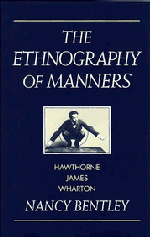1 - The equivocation of culture
Published online by Cambridge University Press: 24 October 2009
Summary
Of all learned discourse, the ethnological seems to come closest to a fiction.
–Roland BarthesAfter his arrival in London, where he would establish his career as a novelist, Henry James wrote, “I take possession of the Old World. I inhale it – I appropriate it”. Beginning his fieldwork in the Trobriand Islands, Bronislaw Malinowski wrote in his diary of “feelings of ownership”: “This island, though not ‘discovered’ by me, is for the first time experienced artistically and mastered intellectually”. James's life in London, of course, was dramatically different from Malinowski's in the Trobriands, but coupled together, the quotations point to a striking similarity. In these two ventures – an American crossing the Atlantic to repossess the Old World, and an anthropologist mastering a “primitive” world – the language of colonial discovery is cast in new terms: these travelers come not to seize lands and people but to write them. Despite their differences, James's innovations in realist fiction and Malinowski”s in ethnography are part of a new way of seeing and writing about social life that developed in the later nineteenth century. Each writer refashions an earlier, more provincial genre of manners – the novel of manners, in one case, and the traveler's customs-and-manners survey, in the other – to produce a complex professional and international discourse. Each discourse, in turn, fosters for the writer an enhanced authority over a bounded sphere of culture, an aesthetic and intellectual “ownership” of manners intended to surpass coarser forms of cultural possession.
- Type
- Chapter
- Information
- The Ethnography of MannersHawthorne, James and Wharton, pp. 1 - 23Publisher: Cambridge University PressPrint publication year: 1995



